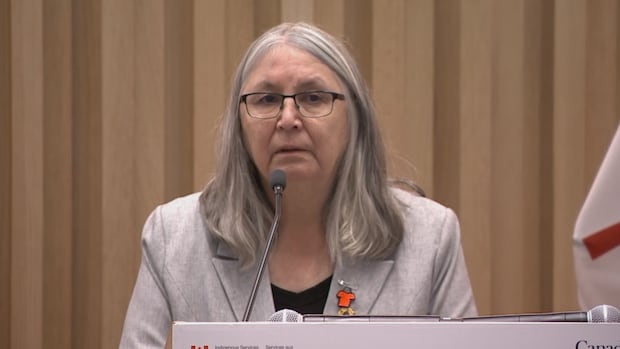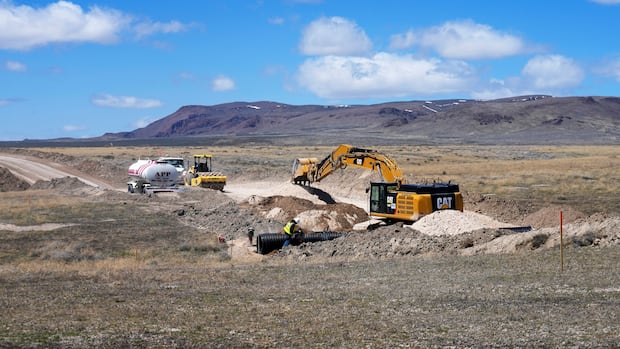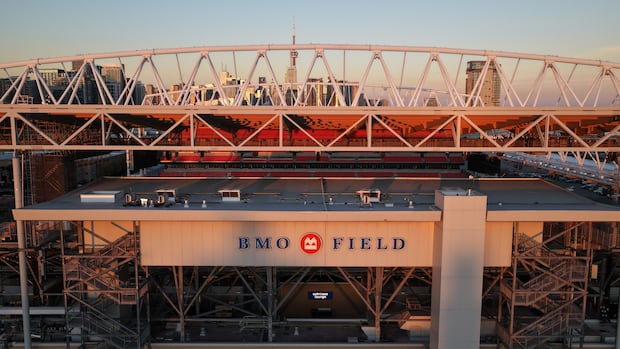The chief of a northern Manitoba First Nation says officials are playing a “waiting game” as the community has been dealing with nearby wildfires, smoke and an ongoing power outage for three weeks.
Shirley Ducharme, chief of the O-Pipon-Na-Piwin Cree Nation (OPCN), about 775 kilometres north of Winnipeg, said the area is experiencing hotspots and flare ups that have periodically closed highways 493 and 391, making it difficult to get the firefighting and hydro service support they need.
“The goal here is to get these hotspots out and … get the power restored for our First Nation,” Ducharme said during a press conference on Tuesday.
She said she’s been frustrated with the response from provincial wildfire and emergency management officials, Indigenous Services Canada and Manitoba Hydro.
“There’s fires still surrounding us and they’re going to wait until it gets close, until we are at a high risk. That’s not what I call prevention,” she said.
“I don’t know why this waiting game has been played.”
The Manitoba government said it has been in regular contact with the First Nation about the wildfire burning south of the community. In a statement to CBC News on Tuesday, provincial officials said that wildfire is “not currently very active.”
As of Monday, that wildfire had burned more than 15,500 hectares, according to the most recent wildfire status report available from the province on Tuesday. The fire is still considered out of control.
The province said it has deployed “significant resources” to other wildfires in the region, including dedicated fire crews and helicopters.
Officials confirmed that the intersection of highways 493 and 391 have been intermittently closed off for public safety reasons due to wildfires and smoke. The government said the road “is not impassable” and provincial staff have been helping to move people, supplies and food in the area.
The First Nation has about 1,100 people living in the community, with about 230 vulnerable residents sent to Winnipeg as Priority 1 evacuees on July 5 and July 6, Ducharme said. About 80 per cent of the residents are still at home.
On Monday, the local health centre’s main generator stopped working, Ducharme said. Now they are relying on smaller backup generators from the province’s emergency management office to keep services running.
“There has been no action, no activity from Manitoba Hydro,” Ducharme said, adding hydro officials have told leadership that it’s not safe to send workers to the community.
“Right now, we are managing. We have living conditions that we are able to manage because of who we are, and we know how to survive without power,” she said.
OPCN Vice Chief Oliver Dysart said the community is “feeling a lack of support” from the province and Manitoba Hydro.
The Crown corporation isn’t providing staff to fix the power outage, instead it’s been sending supplies for community members to wrap hydro poles to protect against further damage, he said.
“We’re kind of fending for ourselves,” Dysart said.
Ducharme said about 50 hydro poles near the community have fallen since the power first went out on July 9.
Coun. Jonathan Soulier said the First Nation is using about 3,000 litres of gas per day to power homes and community buildings.
Manitoba Hydro said in an emailed statement to CBC News on Tuesday that it is monitoring outages in the area with help from provincial wildfire services.
Hydro workers “haven’t been able to safely access the area to fully assess the damage,” a spokesperson said, adding they don’t have a timeline for repairs due to the active wildfires and road closures in the area.
Find the latest wildfire information:
Are you an evacuee who needs assistance? Contact Manitoba 211 by calling 211 from anywhere in Manitoba or email [email protected].







